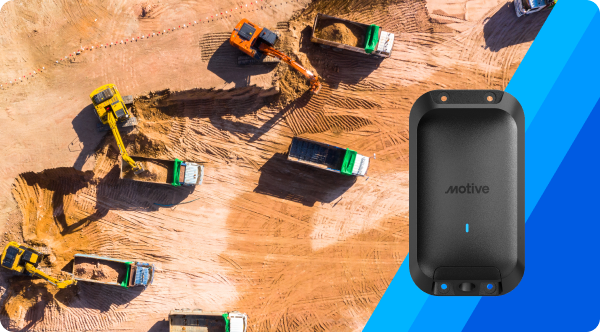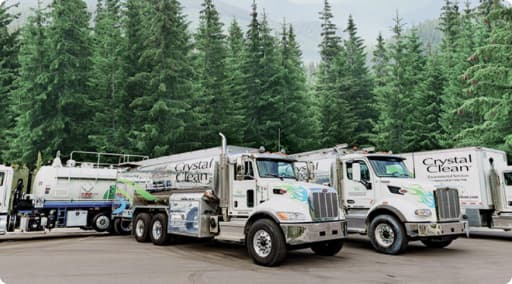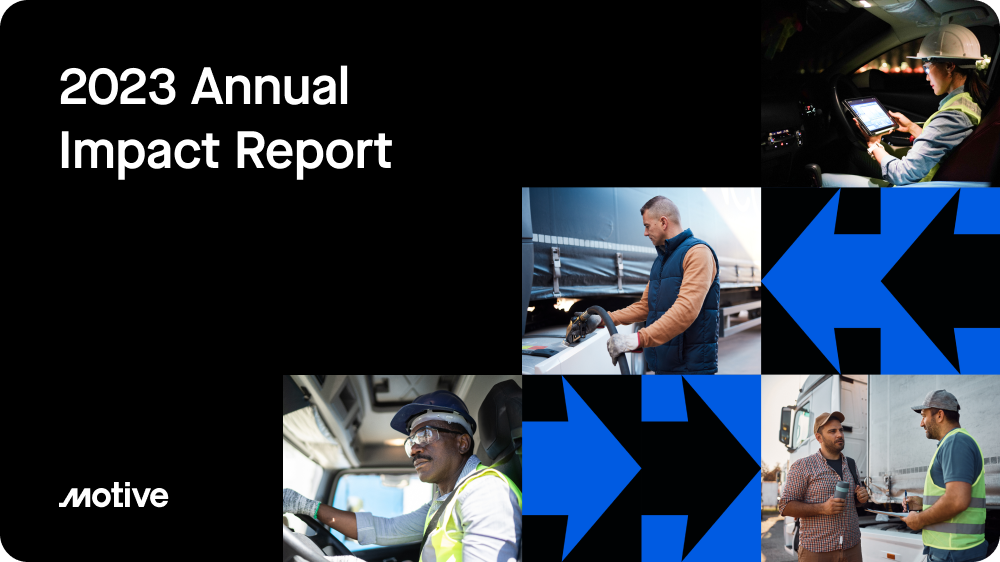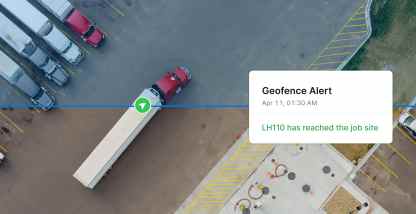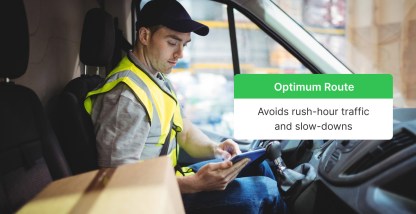As a fleet grows, managing trailers quickly becomes a significant challenge. This is where trailer tracking systems come in. Why?
- The typical fleet has about 2.5 trailers per vehicle
- Growth often leads to expansion of new cargo types, which requires additional types of trailers
- Within each type of trailer, there are multiple sizes and weight limits required
- Trailers are often spread out at multiple terminals, depending on where they were last used
It’s not difficult to see how finding the correct (and closest) trailer can become a serious logistical headache. This is the problem that commercial trailer tracking systems were designed to solve.
What is a commercial trailer tracking system, and how does it work?
A commercial trailer tracking system uses a small GPS tracking device that is attached to the trailer. This device emits a GPS tracking signal that records its current location at scheduled intervals.
These GPS coordinates are then sent to a fleet management system via a cellular connection where they are displayed on the map. The dashboard will often provide additional information such as the trailer type and size, whether the trailer is moving, and if it’s tethered to a vehicle.
While systems can vary, a fleet asset tracking system can typically track any trailer type, including flatbeds, reefers, dry vans, low boys, and more. Modern systems like Motive Asset Gateways go a step further and can track other valuable assets such as equipment.
How do fleets use tracking systems?
Trailer tracking systems come with a number of benefits that go far beyond answering, “where’s my trailer?” Here are a few of the top ways fleets use GPS trailer tracking in their operations:
Eliminating yard hunts. Searching the yard, or worse, calling another terminal to search their yard, for a specific trailer can be a time-intensive process. With a trailer tracking system, you can simply search for a specific trailer and immediately see its location. You can also search for a geofenced location to get a full inventory of the trailers currently in the yard.
Easier dispatching and reduced out-of-route miles. Often, a load requires a specific trailer. With a quality trailer tracking system, you can search by trailer type, size, and other key criteria to find the closest suitable trailer to a driver. Or, you can choose a driver for a load based on their proximity to a specific trailer.
Prevent theft. Unfortunately, theft is a significant problem. Beyond losing the trailer and cargo, it can strain customer relationships and lead to a loss of business. With a trailer tracking system, you can quickly locate and recover a stolen trailer.
With a leading solution like Motive Asset Gateways, you can go a step further and create geofences around yards or any other location and receive immediate notifications when a trailer enters or leaves a location when it shouldn’t.
Efficient asset utilization. With trailers, it’s generally better to err on the side of too many than too few. If not managed correctly, it can be easy to go overboard here. Trailer tracking systems can provide historical reporting that shows utilization rates. With this data, you can identify opportunities to sell unneeded trailers of a certain type to save on insurance and maintenance.
Proactive maintenance. Trailers need maintenance based on the number of miles driven. A trailer tracking system can provide mileage reporting for each trailer to make it easy to understand when it needs to be taken into the shop.
5 key questions to ask when evaluating a tracking solution
There are many features available with trailer tracking systems, and the ones you need will be specific to your business. But, here are five key questions to consider to help make the right choice.
- How often does the trailer tracking device send back GPS locations?
There is a wide range of time intervals here. Some solutions send the GPS location every minute; some send it every two (or even 12) hours. The reason for sending less frequently is oftentimes to increase the lifespan of an inefficient or poorly made battery. A solution that sends GPS location every few hours may limit the usefulness of your solution, as a lot can change in that timeframe.
- What is the battery life, and what other power options do I have?
Frequently changing or charging batteries is time-consuming and distracts from more important work. Choose a solution with a long-lasting battery that can recharge itself via a built-in solar panel or power cable.
- How long and how complex is the installation process?
Installation complexity is a commonly undervalued factor in choosing a solution. If adding and removing a trailer tracking device is time-consuming, you may be adding a significant and expensive maintenance burden.
- Does the provider offer geofencing?
A geofence is an invisible barrier set up by using GPS coordinates around a selected area. Geofencing can provide alerts for possible theft situations, prove when a customer load arrived, track detention time, and much more.
- Is it integrated with my fleet management system?
There are many trailer tracking options in the market that are not part of a fleet management system. If you choose one, be sure there’s real-time integration with your fleet management dashboard. If there isn’t, your team will need to use multiple logins to do their jobs, which can quickly become time consuming.
Additionally, look closely at how difficult the integration will be to set up and maintain. A fleet management system that offers built-in trailer tracking can greatly simplify operations by allowing you to track every asset from a single dashboard:
Commercial trailer tracking systems are becoming a must for fleets
Modern trailer tracking systems can do much more than answer the “where’s my trailer?” question. Due to native integrations with fleet management systems, adopting a trailer tracking system has never been easier.
If you’re looking to add a trailer tracking system or upgrade your existing solution, check out this complete guide to trailer tracking.
Get started with Motive
Learn about Motive Tracking & Telematics, or contact a sales rep with specific questions about Motive’s trailer tracking solutions.
